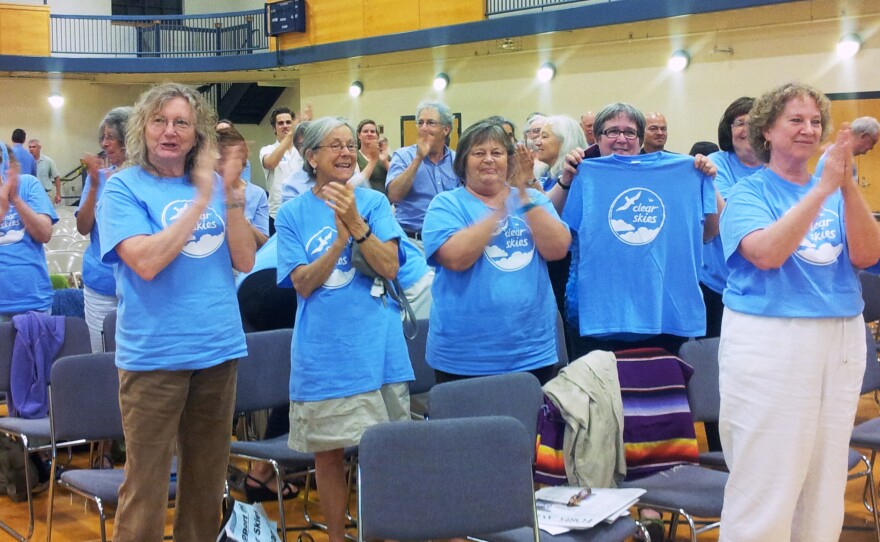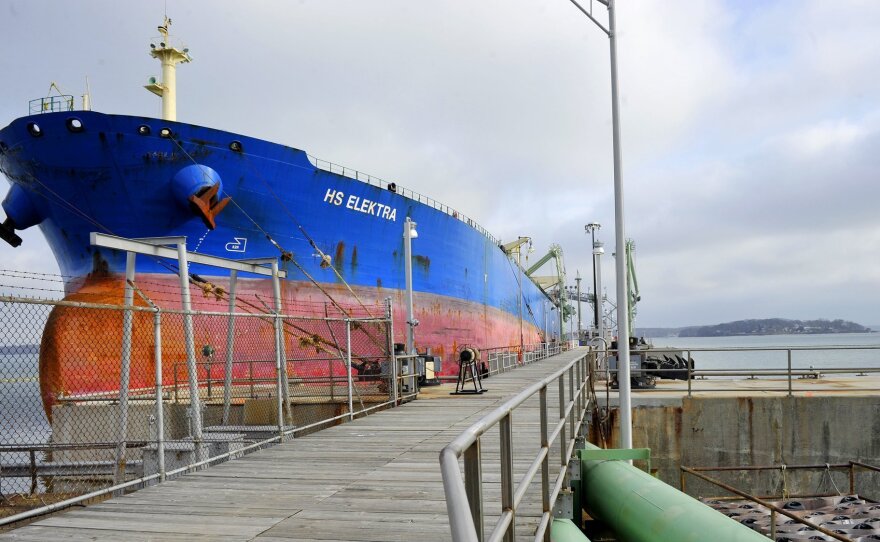
South Portland, Maine, is known as the place where Liberty ships were built by tens of thousands of workers during World War II. Now, the city's waterfront is home to an oil terminal and the beginning of a 236-mile-long pipeline.
For more than 70 years, the Portland Montreal Pipeline Corp. has pumped crude oil up through the pipeline, across Maine, New Hampshire and Vermont, to be refined in Montreal.
Now, Canada is in the midst of an oil boom and the company has expressed interest in using the pipeline to carry Canadian crude, including tar sands oil, in the opposite direction — from Montreal to Maine — for delivery to the world market.
But the city, citing environmental concerns, has passed an ordinance blocking tar sands oil and other raw crude from being loaded onto tanker ships at the city port.
"People are concerned [about] what happens if we have a large amount of tankers that are being loaded with crude oil," says South Portland Mayor Jerry Jalbert.
Residents are concerned about air pollution, the possibility of a spill and the difficulty of cleaning up a heavier, more toxic form of crude oil, he says. It's that confluence of concerns that moved the council to ban tar sands.
"The Clear Skies Ordinance prohibits the bulk loading of crude oil onto marine tank vessels," Jalbert says. "It does not affect any current operations."
While current business won't change, the oil industry still doesn't like the ordinance. Matt Manahan, an attorney for the Portland Montreal Pipe Line Corp., warned council members before their final vote Monday that he doesn't think the ordinance would hold up in court.
"This ordinance, if passed, would clearly be pre-empted by federal and state law," Manahan said before the vote. "There can be no doubt about that, and it's a mistake to move forward with an illegal ordinance."
Pipeline company officials say they are evaluating their legal options. They say the ordinance restricts their ability to adapt to a changing market and to meet the energy needs of the region.
At least one oil industry analyst is skeptical of that claim. "I don't think this is going to make a big difference in terms of northeastern crude oil supply," says Tom Kloza, an oil analyst at GasBuddy.com.
Kloza says even without the pipeline, Canadian crude is still coming. "One thing we've learned in the last couple of years is you can move oil by rail very, very quickly," he says. "The crude's going to come from the oil sands to the United States and other points."
That hasn't discouraged Dylan Voorhees, the Clean Energy and Global Warming Project director at the Natural Resources Council of Maine. He says what has happened in South Portland is galvanizing activists around the country and motivating them to raise awareness about the threat of tar sands.
"And they are getting a boost," Voorhees says. "A shot in the arm to see citizens in South Portland successful in a persistent effort against all odds and against oil to get their community protected."
If the ordinance is too restrictive, Mayor Jalbert says the council can always make revisions. But in the event of a lawsuit, he says South Portland plans to defend the ordinance and mount a national online campaign to get environmental groups and other supporters to pay for it. Copyright 2014 Maine Public Broadcasting Network. To see more, visit http://www.mainepublicradio.org/.
Copyright 2014 NPR. To see more, visit http://www.npr.org/






